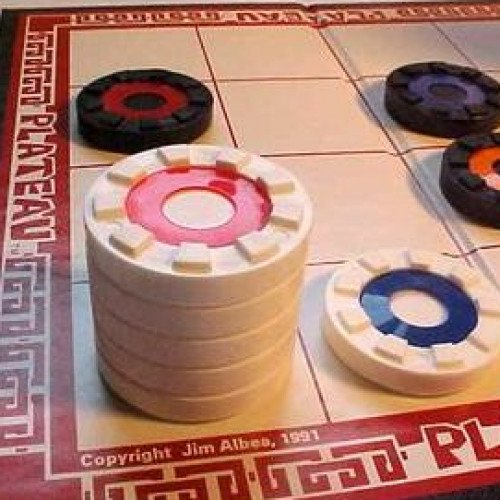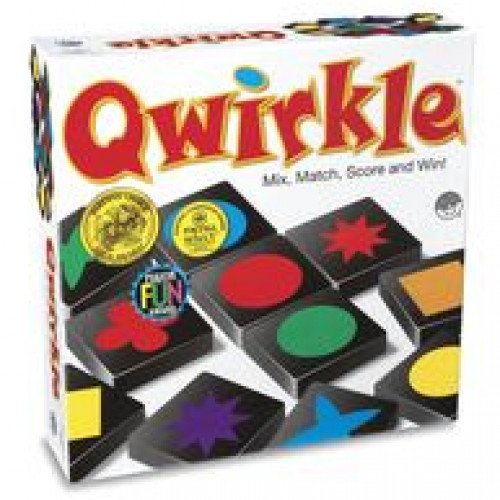PLATEAU VS QWIRKLE

PLATEAU
Plateau is a two-player abstract strategy board game invented by Jim Albea. The game was developed over a two-year period culminating in its present form on May 12, 1986. The original name for the game was Pinnacle, but it was discovered that an older board/card game had that name, so around 1989 the name was changed to Plateau. From the 1980s through the 1990s Plateau was played at Science Fiction conventions mostly in the Southeastern United States. From the 1990s to the present, the game is played live at an online game site and via email. In 1997 a computer implementation of the game was created which facilitates email play and has a computer robot. Onboarding is adding one new piece to the play. This new piece can be placed anywhere that doesn't directly harm an opposing piece. For instance, you can onboard to any blank square or on top of any of your own pieces. The majority of Plateau moves are onboards. Instead of Onboarding or Moving, a player can choose to spend his turn exchanging prisoners. Prisoners are exchanged using the point values of the pieces. A simple value-for-value system is used. Since the pieces range in value from 1 point (for the mute) to 21 points (for the Ace) there are usually several combinations and options available for the players. The player initiating the exchange selects the pieces he wishes to exchange. These pieces will all add up to some point value. The responding player then has four options depending on the point values of the prisoners that he holds.
Statistics for this Xoptio

QWIRKLE
Qwirkle is a tile-based game for two to four players, designed by Susan McKinley Ross and published by MindWare. Qwirkle shares some characteristics with the games Rummikub and Scrabble. It is distributed in Canada by game and puzzle company Outset Media. Qwirkle is considered by MindWare to be its most awarded game of all time. In 2011, Qwirkle won the Spiel des Jahres, widely considered the most prestigious award in the board and card game industry. A sequel, Qwirkle Cubes, was released by Mindware in 2009. Qwirkle comes with 108 wooden tiles, and each tile is painted with one of six shapes (clover, four-point star, eight-point star, square, circle and diamond) in one of six colors (red, orange, yellow, green, blue and purple). The box also contains a bag to store the tiles and a rule book. The game begins with all the tiles being placed in the bag and mixed thoroughly. Each player then randomly draws six tiles. During their turn, a player may either: place one or several tiles on the table; or instead of playing tiles, exchange one or more tiles in their hand for other random tiles. In general, any tiles that are placed in a row must share one attribute (either color or shape), and they must be played in one line, although they do not need to touch other tiles being placed in that turn. A player must always end a turn with six tiles, so, if they place tiles during a turn, they draw random tiles to build their hand back up to six. Play continues until one person uses all of their available tiles and there are no more tiles to be drawn.